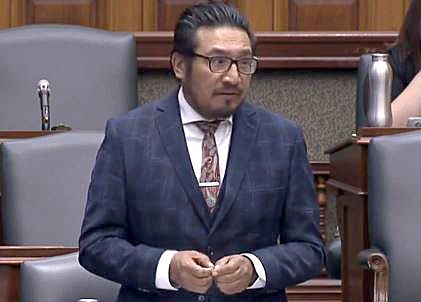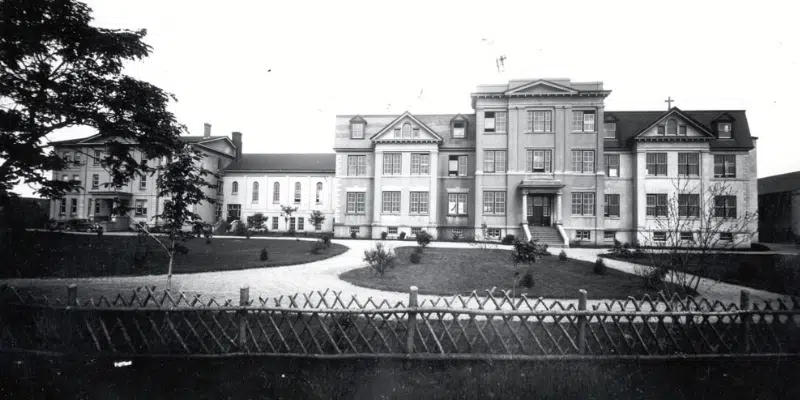Decades of admonition to forsake his native tongue did not deter Sol Mamakwa as he stood poised to etch his name in history within the hallowed halls of the Ontario legislature.
Despite the lingering apprehension that he should adhere to English rather than Anishininiimowin, or Oji-Cree, the language bestowed upon him by his mother, Mamakwa grappled with the notion that he might be transgressing parliamentary protocol. “I thought I was breaking the laws and the rules of this house and I tried to remind myself that there’s nothing wrong with this, ‘You’re allowed to speak,'” recounted Mamakwa.
In a watershed moment, the New Democrat—singularly representing First Nation interests in the province—delivered his address at Queen’s Park in his native tongue on Tuesday, a historic first in Ontario’s legislative annals, surpassing the conventional linguistic bounds of English and French.
In a consequential turn of events, Mamakwa, aged 53, brokered a commitment from the premier to erect a long-term care facility in Sioux Lookout, Ontario, thereby etching his milestone deeper into the annals of Ontario’s political landscape.
“I want to say thank you to everyone present. I’m very grateful, thankful for the opportunity to be able to speak my Anishininiimowin, in Indigenous Oji-Cree language in this legislature,” Mamakwa said through an interpreter at the start of his speech.
“I am speaking for those that couldn’t use our language and also for those people from Kiiwetinoong, not only those from Kiiwetinoong, but for every Indigenous person in Ontario.”
Prior to this occasion, the Ontario legislature had maintained a policy disallowing interpretation and transcription in languages beyond English and French.
Approximately a hundred supporters convened in Toronto to witness this epochal event, among them Mamakwa’s mother, siblings, close companions, and leaders of First Nations communities. The timing proved serendipitous for Mamakwa’s mother, Kezia Mamakwa, who celebrated her 79th birthday on that Tuesday.
During an emotionally charged question period, politicians serenaded her with a rendition of “Happy Birthday” and accorded multiple standing ovations to Sol Mamakwa, underscoring the significance of the moment.
“Today was monumental for me,” Mamakwa said afterward.
Throughout the past century, Indigenous languages across Canada have faced a dire fate of decline. Historically, governmental policies, often in collaboration with the Catholic and Protestant churches, led to the forcible removal of First Nation children from their familial environments, subjecting them to English instruction in residential and day schools. Speaking their native languages incurred severe penalties, with children enduring punishment for doing so.
Mamakwa’s own experience mirrors this grim reality.
During his teenage years, Mamakwa spent two tumultuous years at a residential school in northwestern Ontario, where speaking Anishininiimowin carried punitive consequences. Detention was a common repercussion, though harsher forms of punishment were not uncommon. Such disciplinary measures were not isolated incidents but were replicated across the nation within the residential school system, which persisted until the closure of the last institution in 1996.
“Everyone that’s listening: we need to revitalize our First Nations language, teach your children to speak the First Nations language and to be proud of it.”
Mamakwa issued a heartfelt plea to First Nations communities, urging them to preserve their languages while the elder generations, who still possess fluency, remain among them.
The pivotal moment at Queen’s Park was ignited by Mamakwa’s persuasive efforts with Government House Leader Paul Calandra, resulting in his authorization to address the legislature in the language imparted by his parents.
Representing the Kingfisher Lake First Nation in northern Ontario, Mamakwa has underscored the significance of this milestone in light of the rapid erosion of Indigenous languages. He views his address and inquiries within the legislature as a stride toward reconciliation.
In response to Mamakwa’s advocacy, Calandra amended the standing orders governing language use within the legislative chamber to encompass all Indigenous languages spoken in Canada.
To facilitate communication, interpreters were enlisted to provide real-time translations of Mamakwa’s discourse. Additionally, Mamakwa’s words will be transcribed in syllabics, an Indigenous writing system, within Hansard, the official record of proceedings at Queen’s Park.
The historic moment drew the presence of numerous First Nation leaders, acknowledging its profound significance.
“To hear your language being spoken in the most colonial institution in this province is something that many of us never thought we would ever witness,” said Grand Chief Alvin Fiddler of Nishnawbe Aski Nation, which represents 49 First Nations in northwestern Ontario.
“It’s something that is long overdue.”



